Kenneth Atchity's Blog, page 97
May 15, 2019
Brain Hackers Mag: Ken Atchity on The Value of Creativity with Dave Farrow - The Brains Behind It

Published on May 15, 2019 00:00
BrainHackers Mag: Ken Atchity on The Value of Creativity with Dave Farrow - The Brains Behind It

Published on May 15, 2019 00:00
May 13, 2019
New From Story Merchant Books: Until Death Do Us Apart by Cade North
Until Death Do Us ApartBy Cade North
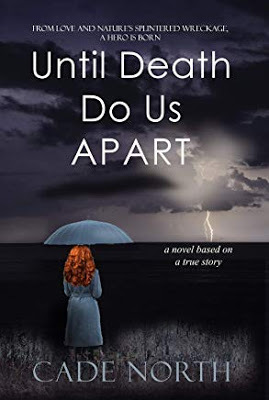 LOS ANGELES, CA—Story Merchant Books releases its newest dark comedy novel, Until Death Do Us Apart, from author Cade North.
LOS ANGELES, CA—Story Merchant Books releases its newest dark comedy novel, Until Death Do Us Apart, from author Cade North.A natural disaster, naked fortune telling, a romantic catastrophe, supervillains, and poop on slides--just another week in the life of Sloane Noah. Despite always wanting a boring life, this single parent and hapless college professor finds she’s a lightning rod for the shocking and comically bizarre.
Based on a true story, this darkly hilarious book chronicles one woman’s tale about learning resilience from misfortune and strength from pain. Nature’s splintered wreckage, laughter, and the carcass of love prove to be the key ingredients for becoming her own hero. This dynamic story will resonate with anyone who’s ever fumbled through life’s absurdities and, somehow, still managed to stumble into a bright, new day.
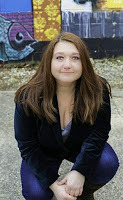 Cade North
Cade North
As Dr. Cade North carved out a career in academia and successfully raised two children on her own, North survived her own long history of romantic mishaps as well. While living a life packed with unplanned comedy and adventure, Cade developed the ability to turn personal calamities into hilarious tales.
Originally from Richmond, Indiana, North lived in numerous places across the U.S. and traveled throughout the world while getting her education and earlier work experience. Coming full circle, now Cade lives back in Indiana and works as college professor.
To request a review copy or inquire about an author interview, please email chris@storymerchant.com

Published on May 13, 2019 14:09
May 10, 2019
May 8, 2019
Dennis Palumbo's Short Story "Evidence" appears in the latest issue of Mystery Weekly
At the cutting edge of crime fiction, Mystery Weekly Magazine presents original short stories by the world’s best-known and emerging mystery writers.

Check out Dennis Palumbo's "Evidence," in the latest issue of MYSTERY WEEKLY magazine. Also Paul Marks' story featured on the cover. It's among the many terrific mystery stories in this edition of the magazine.


Check out Dennis Palumbo's "Evidence," in the latest issue of MYSTERY WEEKLY magazine. Also Paul Marks' story featured on the cover. It's among the many terrific mystery stories in this edition of the magazine.

Published on May 08, 2019 00:00
May 6, 2019
Sharon Farsijani is a Rise & Shine and Noon Anchor at KMVT News!
Sharon Farsijani anchors the weekday Rise & Shine and Noon newscasts on KMVT at 6 a.m., 6:30 a.m. and noon. Born in Tehran, Iran, and raised in Brooklyn, N.Y., she returned to Tehran as a young teenager only to move back to NYC as a young adult. During her time in the Middle East, Sharon started her broadcast career at age 19 as a reporter, evening news anchor, producer and talk show host for IRIB Channel 6, Channel 4 and Radio BBC. She covered various events including the FIFA World Cup 1998, Iran’s historic 2001 Presidential Elections and the Changing, Cultural Times during the Khatami Era.
After returning to the United States, she studied at the Walter Cronkite School of Journalism and California State Fullerton to receive her degree in Broadcast Journalism and later her MBA from Pepperdine University. Upon graduation she interned with KABC Los Angeles and NBC Nightly News. After witnessing the harsh treatment towards women in the Middle East she shared her journey, penning her first poetry collection "Lacking Lips of Time" and memoir "Shaming My Red Lips."
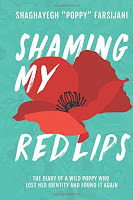 Everyday in Tehran she contemplated the concepts of beauty, the feminine and the expression of the true feminine. As a result, after receiving her MBA, she set out to create a beauty entrepreneur brand that explored and celebrated power, sensuality and the global feminine called Poppy Farsijani Fragrance that explores various feminine archetypes. (Her name in Farsi, Shaghayegh, means Wild Desert Poppy.)
Everyday in Tehran she contemplated the concepts of beauty, the feminine and the expression of the true feminine. As a result, after receiving her MBA, she set out to create a beauty entrepreneur brand that explored and celebrated power, sensuality and the global feminine called Poppy Farsijani Fragrance that explores various feminine archetypes. (Her name in Farsi, Shaghayegh, means Wild Desert Poppy.)She says, “Creating awareness regarding issues affecting the community and individuals through reporting is just part of my DNA.” She has returned to broadcasting full-time while running her fragrance business and Female-Preneur podcast on the side.
Sharon is an advocate of understanding cultural differences and providing opportunities to teenagers and individuals to realize their full potential through education and awareness. When she is not on television she lends her time to mentoring college students and helping various charities and community events.
She is fluent in English, Italian and Farsi and is also an avid dancer, skier, a competitive tennis player and loves yoga, reading books and creating more fragrance collections for her company. Her guilty pleasures are eating ethnic pastries and having a glass of wine with chocolate truffles.

Published on May 06, 2019 00:00
May 4, 2019
What is a Beat Sheet?
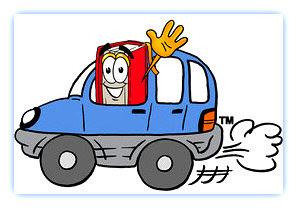
A beat sheet is a writing tool used by film industry writers, directors, and producers to identify in broad strokes the sequence of events, and actions in a story. It is an abbreviated way to break down the structure of your story, making it easier to organize and change.
The beat sheet charts the sequence of events that cause your main character to do something and maps how your main character progresses in his change from the beginning to the end of your story.
Create a beat sheet by using bullet points that illustrate in one or two lines the order of your plot’s progression. Remember plot takes place when a character does something or acts upon another character.
A beat sheet is a diagnostic tool, not an end in itself. There are no hard and fast rules—it’s like jotting down the main turns on the map that takes you to the end of your story.
Then you let a road guide take a look at it, to make sure it’s going efficiently where it is meant to go.
When you actually drive there, you’ll know where you’re going—and you’ll know that your creative time not only knows but has helped you make the best possible route.
Here is an example of a beat sheet for Story Merchant.
JUDAS SILVER by Jon Hargrove
· A tight-knit group of six graduate students, all best friends, are conducting an historical excavation of a colonial church in Boston. The church had been recently burned down. They are led by an eccentric professor. The students are history grad students.
· Beneath the new church, one of the grad students comes across a previously unknown room. In fact, it's a crypt.
· They enter the room, which is burned and destroyed, and unstable at best. Dirt sifts down from above. Timbers creek. The professor finds an unusual leather pouch of coins buried with one of the corpses. He picks up the bag.
· Immediately the room starts to collapse. The students make it, but the professor is killed. His hand, the only part of him not buried, is still clutching the bag of coins.
· The professor’s corpse is later removed, and the six shocked students attend his funeral.
· Days later, the six students gather in a sort of tribute to their killed professor. They gather inside his office on the university, drinking, remembering the old man.
· The professor’s wife arrives, grieving. She hands them the bag of coins, found on the professor’s body. Since the coins are part of the excavation, she wants the students to have them to further their research.
· They open the bag and count out thirty silver coins, all ancient. Could they be the thirty coins used to betray Christ? Some of the students scoff at the idea, but others believe.
· One of the students, Gerald, an intern at the Boston Museum, has had considerable experience in dating artifacts. He tests the coins and concludes that they are over two thousand years old.
· Valery, a student at the Harvard Divinity School, uses history books to place the coins. She’s confidant that they are from the time of Christ.
· Two of the students, Robert and Piers, go out on the town. Robert immediately gets into a fight at a local club and is stabbed to death.
· The remaining five friends are in shock, horrified. Two deaths in one week. Julie, who’s into the arcane and the occult, does some more research. She discovers that the Judas coins are thought to be cursed, and she’s beginning to believe it.
· Sheila brings in a numismatist, who states that the coins could be potentially worth millions if sold to the right collector. The coins have only been rumored to exist. They have on their hands a major find.
· The students argue over who should oversee the coins, now that the coins are valuable. They quickly begin losing trust in each other. They decide to use the museum’s safe.
· Later, Piers and Julie, who are engaged to be married and have known each other since they were kids, suggest that they sell the coins, and share the money. But Sheila reminds them that the coins are not theirs to sell. They belong to the parish, and she thinks they should give the coins back.
· That night the others find Sheila dead. Fallen from her fifth floor dorm room. Her death is ruled a suicide by the police.
· The remaining four students secretly wonder if Sheila’s death was truly a suicide. None of them have alibis.
· Piers is losing it. He believes the coins are cursed and they need to be destroyed. Julie and Gerald go down to the museum to find the coins. But the coins are gone.
· They all suspect each other of stealing them, leading to another murder.
· The three remaining students have decided toss the coins into the Atlantic. Just as they are about to do so, Gerald turns a gun on them.
· They fight and Gerald is killed, falling overboard, leaving only Piers and Julie.
· Piers turns around to see his fiancée Julie holding a gun on him. She wants the coins. He tosses them to her, and she promptly pulls the trigger.
· Alone, with five of her one-time best friends now dead, Julie turns the sailboat back to shore.
· In the distance a storm is coming, and the seas are choppy. Lightning illuminates the entire sky, revealing ominous thunderheads. The little sailboat rises and falls on the massive swells, standing little chance against nature’s fury—and the curse of the coins.
THE END
~ Excerpt from Writing Treatments that Sell
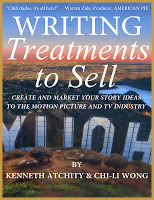

Published on May 04, 2019 00:00
May 2, 2019
NEW FROM STORY MERCHANT BOOKS Grow Your Cash Flow by Ana Weber
Grow Your Cash FlowBy Ana Weber
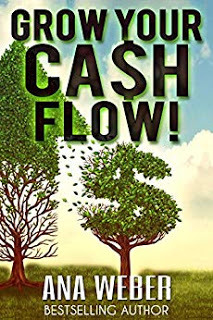 LOS ANGELES, CA—Story Merchant Books releases its newest money-making manual, Grow Your Cash Flow, from author and speaker Ana Weber.Grow Your Cash Flow provides essential and productive tools for enhancing leadership and take the driver seat in your life vehicle. Quote, “even a rock wants to feel important!”
LOS ANGELES, CA—Story Merchant Books releases its newest money-making manual, Grow Your Cash Flow, from author and speaker Ana Weber.Grow Your Cash Flow provides essential and productive tools for enhancing leadership and take the driver seat in your life vehicle. Quote, “even a rock wants to feel important!”· Money has to Flow. Keeping it bottled up makes money your unwilling slave, not your friend and companion.· When Money Does Flow, it “Floats All Boats.” The whole economy revolves around money circulating from one person or business to another, to another.· Attitude is everything. Once you change your attitude toward money, doors of possibility will open to you. As a small girl working alongside my mom in the kiosk in Romania, or as a student living with other poor children and orphans in Kibbutz Mossad, I never could have imagined how abundant the world really was, once I opened myself up to that abundance. It’s been a great journey—and you can succeed, too.
Although money is not life, it is both a metaphor for life and a tool to organize your life. And like other tools in our lives, our relationship with money can help us or hurt us. Using the lessons I’ve learned in my own journey around money, this book gives you many ways to turn money into a positive force in your life—whether or not you currently have a little or a lot of it. Money flows in and out of our lives, and back in again. The Cash Flow represents the flow of life. How money flows through and around you becomes an integral part of your life—but one you can influence, or even control.
Ana Weber is a business "Rainmaker," writer, speaker, 360 Degree Lifestyle Leadership Expert, and Philanthropist, founder of The DOXA method and Grow Your Cash Flow. She has implemented “THE DOXA METHOD” for over 26 years in the corporate world throughout her management and leadership positions: CFO, CEO, VP of Sales for a wide range of industries such as medical, architectural (The Smithsonian Institute) automotive (Porsche Race Car Division), the apparel industry, and washers manufacturing for the trucking industry.
To request a review copy or inquire about an author interview, please email chris@storymerchant.com

Published on May 02, 2019 00:00
May 1, 2019
Angelica Hale Debuts Her New Single Feel the Magic!
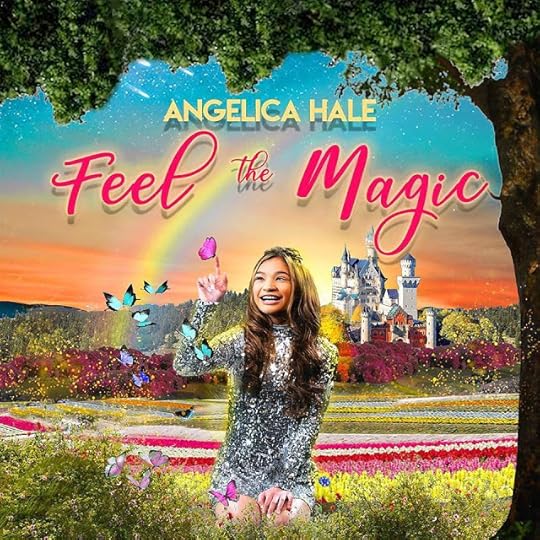
Available at Google Store Music download, stream, and leave a review!
Angelica on Listen World Tour with the TNT Boys Performs Feel the Magic

Published on May 01, 2019 00:00
April 29, 2019
Writing Advice from Haruki Murakami
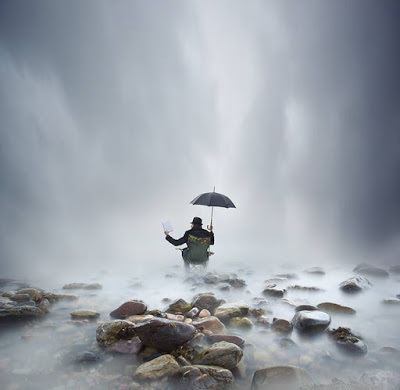
Write to find out.
I myself, as I’m writing, don’t know who did it. The readers and I are on the same ground. When I start to write a story, I don’t know the conclusion at all and I don’t know what’s going to happen next. If there is a murder case as the first thing, I don’t know who the killer is. I write the book because I would like to find out. If I know who the killer is, there’s no purpose to writing the story.

Published on April 29, 2019 00:00




